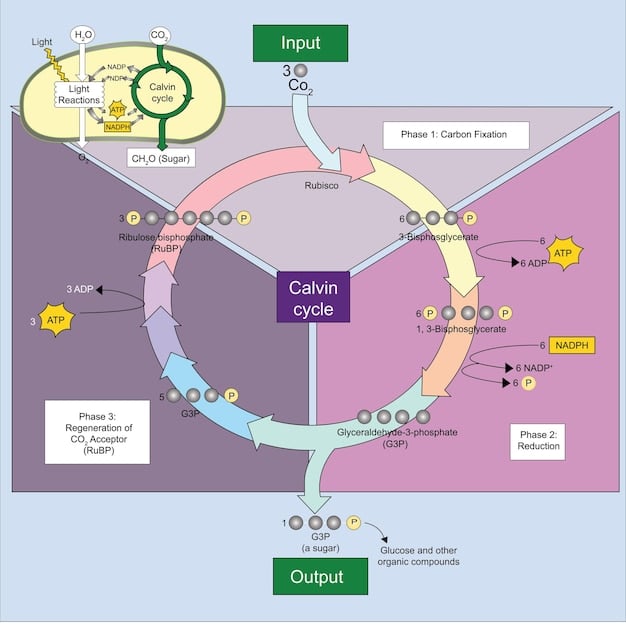Sleep Your Way to Gains: Transform Your Physique with 7-9 Hours of Sleep

Achieving optimal physical gains extends beyond diet and exercise; prioritizing 7-9 hours of quality sleep nightly is crucial for muscle repair, hormonal balance, and enhanced athletic performance, directly transforming your physique and accelerating progress.
In the relentless pursuit of peak physical performance and an ideal physique, countless hours are dedicated to rigorous training and meticulous meal prep. Yet, an often-overlooked, supremely vital component lies in the realm of rest. Can you truly sleep your way to gains: how 7-9 hours of sleep can transform your physique?
The Unsung Hero: Why Sleep is Non-Negotiable for Muscle Growth
Many athletes and fitness enthusiasts view sleep as a passive activity, a mere break between intense workout sessions. However, this perspective fundamentally misunderstands sleep’s active and crucial role in the body’s recovery and anabolic processes. It’s during these seemingly inactive hours that your body undertakes its most significant repair and growth work.
When you lift weights or engage in strenuous physical activity, you create microscopic tears in your muscle fibers. This isn’t detrimental; it’s the necessary stimulus for growth. But the actual “growth” doesn’t happen during your workout. It occurs when your body repairs these tears, making the fibers thicker and stronger. This intricate process is heavily reliant on consistent, quality sleep.
Hormonal Orchestra
Sleep acts as the conductor of your body’s hormonal orchestra, particularly those hormones critical for physical transformation. Without adequate sleep, this delicate balance is thrown into disarray, sabotaging your efforts in the gym and kitchen.
- Growth hormone (GH) secretion: A significant portion of your daily GH release occurs during deep sleep. GH is an anabolic powerhouse, essential for muscle repair, growth, and fat metabolism.
- Testosterone production: Optimal testosterone levels are vital for muscle protein synthesis. Sleep deprivation significantly reduces testosterone, impacting strength gains and recovery.
- Cortisol regulation: Cortisol, a catabolic hormone, breaks down muscle tissue. Chronic sleep deprivation elevates cortisol, hindering muscle growth and promoting fat storage.
Beyond these primary anabolic and catabolic hormones, sleep also influences insulin sensitivity and leptin/ghrelin levels, which regulate appetite and metabolism. A well-rested body manages these more efficiently, leading to better nutrient partitioning and reduced cravings, directly supporting your physique goals.
Essentially, shortchanging your sleep is like building a house with missing foundational pieces. You might put in the effort, but the structure will be compromised and prone to collapse.
The Science of Slumber: How Deep Sleep Drives Physical Recovery
Sleep is not a uniform state; it comprises distinct stages, each contributing uniquely to recovery. For physique transformation, Non-Rapid Eye Movement (NREM) sleep, particularly its deep stages (N3 or slow-wave sleep), is paramount. This is where the magic truly happens.
During deep NREM sleep, your brain activity slows down, and your body enters a state of profound physiological restoration. Blood flow to your muscles increases, and essential nutrients are delivered for repair. Furthermore, the brain clears out metabolic byproducts accumulated during waking hours, optimizing neural function for clearer thinking and improved motor control.
Cellular Repair and Regeneration
The cellular world works overtime during deep sleep. This isn’t just about repairing muscle tears; it encompasses a broader spectrum of cellular processes vital for long-term health and performance. Think of it as a comprehensive internal maintenance crew performing essential upgrades and repairs while you’re unconscious.
- Protein synthesis: Muscle tissue is primarily composed of protein. During deep sleep, the rate of protein synthesis increases, allowing your body to build new muscle fibers and repair damaged ones more efficiently.
- Immune system fortification: Intense training temporarily suppresses your immune system. Sleep helps bolster your immune defenses, reducing the risk of illness that could derail your training progress.
- Glycogen replenishment: Your muscles store glycogen as their primary energy source. Sleep aids in replenishing these stores, ensuring you have enough fuel for your next demanding workout.
Disrupting these processes through insufficient sleep means your body never fully recovers. This can lead to accumulated fatigue, decreased performance, increased injury risk, and ultimately, stagnated gains. Consistent deep sleep ensures your body moves from a catabolic (breakdown) state to an anabolic (building) state.
Beyond Muscle: Sleep’s Impact on Fat Loss and Body Composition
While muscle gain often takes center stage in physique discussions, effective fat loss is equally crucial for achieving a lean, defined look. Sleep plays a surprisingly direct and significant role in this aspect, influencing metabolic rate, appetite regulation, and fat storage. It’s not just about what you eat and how much you move; it’s also about how well you rest.
Lack of sleep can disrupt the delicate balance of hormones that control hunger and satiety. Specifically, ghrelin (the hunger hormone) increases, leading to heightened appetite and cravings, particularly for high-calorie, unhealthy foods. Conversely, leptin (the satiety hormone) decreases, meaning you feel less full and satisfied after eating, prompting you to consume more calories than needed.
Metabolic Implications
The metabolic consequences of sleep deprivation are far-reaching. Your body becomes less efficient at processing glucose, leading to insulin resistance. When cells don’t respond well to insulin, blood sugar levels remain elevated, signaling the body to store more energy as fat. This creates a difficult cycle where fat loss becomes increasingly challenging despite efforts in diet and exercise.
- Increased fat storage: Elevated cortisol and insulin resistance from poor sleep disproportionately promote fat storage, especially around the midsection.
- Decreased metabolic rate: Chronic sleep deprivation can subtly lower your resting metabolic rate, meaning you burn fewer calories at rest.
- Reduced fat oxidation: Your body becomes less effective at burning fat for fuel when sleep-deprived, preferring to hold onto fat stores.

Achieving a desirable body composition—more muscle and less fat—is a holistic endeavor. Focusing solely on diet and exercise while neglecting sleep is like trying to drive a car with the parking brake on. You’ll move, but not optimally, and you’ll struggle to reach your destination efficiently.
Optimizing Your Sleep Environment for Peak Performance
Knowing that sleep is vital is one thing; consistently getting quality sleep is another. Many factors within your control can significantly impact your sleep hygiene. Creating an optimal sleep environment is about intentionally arranging your surroundings to promote deep, uninterrupted rest, making it easier to consistently hit that 7-9 hour target.
Your bedroom should be a sanctuary dedicated to sleep. This means minimizing distractions and optimizing conditions for rest. Everything from the amount of light and noise to the temperature and comfort of your bedding plays a role in signaling to your body that it’s time to transition into a restorative state. Investing in a good mattress and pillows can make a substantial difference in sleep quality and physical comfort.
The “Dark, Cool, Quiet” Mandate
These three elements are the pillars of an ideal sleep sanctuary.
- Darkness: Even small amounts of light can disrupt melatonin production, the hormone that signals sleep. Use blackout curtains, an eye mask, or ensure all light-emitting devices are covered or removed from the room.
- Coolness: The ideal sleep temperature is typically between 60-67°F (15-19°C). A slightly cool room promotes the natural drop in core body temperature necessary for initiating and maintaining sleep.
- Quiet: Minimize noise pollution. Use earplugs, a white noise machine, or a fan to mask external sounds that might wake you or prevent you from falling asleep.
Beyond these core elements, consider reducing electronics before bed. The blue light emitted from screens suppresses melatonin and keeps your brain active. Aim for a digital detox at least an hour before sleep. Establishing a consistent sleep schedule can also significantly improve the quality of your rest. Going to bed and waking up at roughly the same time each day, even on weekends, helps calibrate your body’s natural circadian rhythm.
Think of optimizing your sleep environment as fine-tuning your recovery engine. The better the conditions, the more efficiently your body can perform its repair and growth functions, directly translating to better gains in muscle and fat loss.
The 7-9 Hour Sweet Spot: Tailoring Sleep to Your Training Demands
While the 7-9 hour recommendation is a universally accepted guideline for adults, elite athletes and individuals engaged in high-intensity training might require even more. The amount of sleep you need isn’t static; it fluctuates based on your activity level, stress, and individual recovery demands. Listening to your body is key to finding your personal “sweet spot” within this range.
For someone training intensely — lifting heavy, incorporating cardio, and pushing their limits — that 7-9 hour window becomes the minimum baseline. During periods of increased training volume or intensity, such as a bulking phase or cutting cycle, extending sleep duration closer to the 9-hour mark, or even beyond, can significantly accelerate recovery and adaptation.
Individual Needs and Recovery Signals
How do you know if you’re getting enough? Beyond the clock, your body provides clear signals.
- Daily fatigue levels: Do you wake up feeling refreshed, or do you hit the snooze button repeatedly and feel groggy throughout the day?
- Workout performance: Are your lifts suffering? Is your endurance flagging? Impaired performance in the gym is a strong indicator of inadequate recovery, often linked to sleep.
- Mood and cognitive function: Irritability, difficulty concentrating, and slowed reaction times are classic signs of sleep deprivation. Your brain needs rest to function optimally, impacting motivation and adherence to your training and nutrition plans.
Experimentation might be necessary to pinpoint your optimal sleep duration. Try consistently going to bed an hour earlier for a week and observe the impact on your energy, performance, and overall well-being. Even a cumulative sleep debt from weekdays can have a profound negative effect, making weekend “catch-up” sleep less effective in truly restoring balance.
In essence, seeing sleep as an active component of your training program, rather than a passive necessity, empowers you to prioritize it. This proactive approach, ensuring you meet your individual sleep demands within the 7-9 hour guideline, will unlock accelerated progress and sustained gains in your physique transformation journey.

Common Sleep Disruptors and How to Conquer Them
Even with the best intentions, our modern lifestyles present numerous challenges to achieving consistent, quality sleep. Recognizing these common disruptors is the first step toward mitigating their impact and reclaiming your nightly rest. From late-night screen time to dietary choices, many seemingly innocuous habits can silently sabotage your sleep architecture.
One of the most pervasive disruptors is excessive screen time before bed. The blue light emitted from smartphones, tablets, and computers can suppress melatonin production, making it harder to fall and stay asleep. Beyond light, the stimulating content we consume—emails, social media, news—keeps our minds active and engaged, hindering the relaxation necessary for sleep onset.
Strategies for Better Sleep Hygiene
Conquering sleep disruptors often involves implementing small, consistent changes to your daily routine.
- Limit caffeine and alcohol: While alcohol might initially feel like it aids sleep, it fragments rest in the latter half of the night. Caffeine, even hours before bed, can significantly impact sleep latency and quality. Avoid both several hours before sleep.
- Manage stress: Chronic stress is a significant impediment to sleep. Incorporate stress-reduction techniques like meditation, deep breathing exercises, or gentle stretching into your evening routine.
- Regular exercise (but not too close to bedtime): Physical activity during the day improves sleep quality, but intense workouts too close to bedtime can elevate core body temperature and stimulate the nervous system, making it harder to fall asleep. Aim to finish strenuous exercise several hours before sleep.
Furthermore, maintaining a consistent sleep schedule, as mentioned earlier, is a powerful tool. Your body’s circadian rhythm thrives on regularity. Even on weekends, try to stick to your weekday sleep and wake times within an hour’s variation. Creating a relaxing pre-sleep ritual—such as a warm bath, reading a book, or listening to calming music—can also signal to your body that it’s time to wind down.
Addressing these disruptors requires discipline and consistency, but the physiological and performance benefits—from enhanced muscle growth to better fat loss and overall well-being—are immeasurable. Prioritizing sleep is not a luxury; it’s a fundamental pillar of your physique transformation journey and overall health.
| Key Point | Brief Description |
|---|---|
| 😴 Sleep & Hormone Balance | Adequate sleep boosts growth hormone and testosterone while reducing catabolic cortisol, critical for muscle anabolism. |
| 💪 Muscle Repair & Growth | Deep NREM sleep facilitates cellular repair, protein synthesis, and glycogen replenishment, directly impacting muscle recovery and hypertrophy. |
| ⚖️ Fat Loss & Metabolism | Quality sleep optimizes ghrelin/leptin, improves insulin sensitivity, and supports a healthy metabolic rate for effective fat loss. |
| 🌙 Sleep Environment | Creating a dark, cool, quiet sleep sanctuary and practicing good sleep hygiene enhances rest quality for maximum gains. |
Frequently Asked Questions
▼
During deep sleep stages, particularly slow-wave sleep, the body significantly increases the release of growth hormone. Growth hormone is crucial for promoting protein synthesis, which is the process of building new muscle tissue and repairing damaged fibers. This anabolic state during sleep is essential for muscle hypertrophy and recovery.
▼
Yes, consistently sleeping less than 7 hours can hinder fat loss. Sleep deprivation disrupts hormones like ghrelin (increases appetite) and leptin (decreases satiety), leading to increased caloric intake. It also elevates cortisol, a stress hormone that promotes fat storage, especially visceral fat, and can lead to insulin resistance, making it harder to burn fat effectively.
▼
The optimal room temperature for quality sleep is generally between 60-67°F (15-19°C). A slightly cool environment helps facilitate the natural drop in your body’s core temperature, which is essential for initiating and maintaining deep, restorative sleep. Deviating significantly from this range can disrupt sleep cycles.
▼
While individual results vary, you might notice subtle improvements in energy levels, workout performance, and recovery within a few days to a week of consistently prioritizing 7-9 hours of sleep. More significant changes in body composition, such as increased muscle definition or reduced body fat, will typically become apparent over several weeks to a few months.
▼
While a balanced diet is always recommended, avoid heavy meals, excessive caffeine, and alcohol close to bedtime, as these can interfere with sleep. Foods rich in tryptophan (like turkey or milk), magnesium (leafy greens, nuts), and complex carbohydrates can support sleep, indirectly aiding your gains by optimizing recovery.
Conclusion
The journey to transform your physique is multifaceted, demanding dedication not only in the gym and kitchen but also, critically, in the bedroom. Understanding that the body actively repairs, rebuilds, and optimizes itself during sleep shifts your perspective from sleep being a mere necessity to a powerful, active component of your training regimen. Prioritizing 7-9 hours of quality sleep each night is not just about feeling rested; it’s about unlocking your full potential for muscle growth, efficient fat loss, and sustained performance. By meticulously crafting a sleep-conducive environment and addressing common disruptors, you empower your body to achieve gains that extend far beyond your expectations. Embrace sleep as your ultimate anabolic tool, and watch your physique transform.





